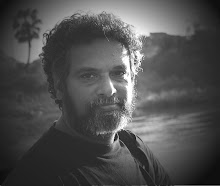Message from Dario Fo on World theatre Day 2013

Today, actors and theatre companies have difficulties finding public stages, theatres and spectators, all because of the crisis.
Rulers are, therefore, no longer concerned with problems of control over those who express themselves with irony and sarcasm, since there is no place for actors, nor is there a public to address.
On the contrary, during the Renaissance, in Italy those in power had to make a significant effort in order to hold the Commedianti at bay, since these enjoyed a large audience.
It is known that the great exodus of Commedia dell’Arte players happened in the century of the counter-Reformation, which decreed the dismantling of all theatre spaces, especially in Rome, where they were accused of offending the holy city. In 1697, Pope Innocent XII, under the pressure of insistent requests from the more conservative side of the bourgeoisie and of the major exponents of the clergy, ordered the demolition of Tordinona Theatre which, according to the moralists, had staged the greatest number of obscene displays.
At the time of the counter-Reformation, cardinal Carlo Borromeo, who was active in the North of Italy, had committed himself to the redemption of the “children of Milan”, establishing a clear distinction between art, as the highest form of spiritual education, and theatre, the manifestation of profanity and of vanity. In a letter addressed to his collaborators, which I quote off the cuff, he expresses himself more or less as follows: “Concerned with eradicating the evil weed, we have done our utmost to burn texts containing infamous speeches, to eradicate them from the memory of men, and at the same time to prosecute also those who divulged such texts in print. Evidently, however, while we were asleep, the devil labored with renewed cunning. How far more penetrating to the soul is what the eyes can see, than what can be read off such books! How far more devastating to the minds of adolescents and young girls is the spoken word and the appropriate gesture, than a dead word printed in books. It is therefore urgent to rid our cities of theatre makers, as we do with unwanted souls”.
Thus the only solution to the crisis lies in the hope that a great expulsion is organized against us and especially against young people who wish to learn the art of theatre: a new diaspora of Commedianti, of theatre makers, who would, from such an imposition, doubtlessly draw unimaginable benefits for the sake of a new representation.
Dario Fo,

Fo’s first theatrical experience was collaborating on satirical revues for small cabarets and theatres. He and his wife, the actress Franca Rame, founded the Campagnia Dario Fo–Franca Rame in 1959, and their humorous sketches on the television show Canzonissima soon made them popular public personalities. They gradually developed an agitprop theatre of politics, often blasphemous and scatological, but rooted in the tradition of commedia dell’arte and blended with what Fo called “unofficial leftism.” In 1968 Fo and Rame founded another acting group, Nuova Scena, with ties to the Italian Communist Party, and in 1970 they started the Collettivo Teatrale La Comune and began to tour factories, parks, and gymnasiums.
Fo wrote about 70 plays, coauthoring some of them with Rame. Among his most popular plays are Morte accidentale di un anarchico (1974; Accidental Death of an Anarchist) and Non si paga, non si paga! (1974; We Can’t Pay? We Won’t Pay!). As a performer, Fo is best known for his solo tour de force Mistero Buffo (1973;Comic Mystery), based on medieval mystery plays but so topical that the shows changed with each audience. His later works, some of which were written with Rame, include Tutta casa, letto e chiesa (1978; All House, Bed, and Church; Eng. trans. Adult Orgasm Escapes from the Zoo), Clacson, trombette, e pernacchi (1981; Trumpets and Raspberries), Female Parts (1981), Coppia aperta (1983; The Open Couple—Wide Open Even), L’uomo nudo e l’uomo in frak (1985; One Was Nude and One Wore Tails), and Il papa e la strega (1989; The Pope and the Witch).
His plays, especially Mistero Buffo, have been translated into 30 languages and, when performed outside Italy, they are often modified to reflect local political and other issues. Fo encourages directors and translators to modify his plays as they see fit, as he finds this in accordance with the commedia dell'arte tradition of on-stage improvisation.
Fo currently owns and directs a theatre company with Franca Rame.
Upon awarding him the 1997 Nobel Prize in Literature, the committee highlighted Fo as a writer "who emulates the jesters of the Middle Ages in scourging authority and upholding the dignity of the downtrodden."


0 Comments:
Post a Comment
Subscribe to Post Comments [Atom]
<< Home